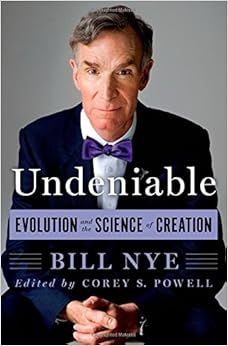It occurred to me just how much there is to think about in just the couple of paragraphs that interest me. I wondered what the intended meaning of individual words were. And I wondered what strategy the writer might have had in mind in choosing the words and sentences that he did, in the order that he did. Is it a pre-rehearsed script he’s following - as I suspected? Has he added some additional meaning that’s meant to shape the scope and direction of any discourse that may follow? Assuming that I may look at this a number of different ways, I’ll try to organize this as clearly as I can. Let me introduce the two subjects of interest.
My first eyeful is the following:
Let me refer to this snippet as the “Presuppositional Limits Gambit”, or PLG. I’ll explain why in a moment.We’re all limited in our viewpoints by our ultimate commitments—what we’re capable of affirming is limited by our presuppositions. Our ideological passions are skewed by our most basic philosophical assumptions we take for granted—we can’t help think the other side’s evidence is faulty or irreverent if it opposes our basic presuppositions.
The second topic of interest I was going to call the Intelligibility Argument for God, but you'll recognize it as just a healthy slice of the Transcendental Argument for God (TAG), which is granddaddy of most arguments positing God as a prerequisite for non-physical concepts.
This is one of the grander assertions of all time, so it will be interesting to see how he clothes it, or if it remains as bare as it appears.[It’s a matter of] finding which worldview provides the ontological resources to account for research, analysis, deliberation, and knowledge. Strict naturalistic atheism is completely devoid of the necessary ontic endowment to account for such necessities. However, theism doesn’t win merely by default, but by having a foundation with the ontic capacity to account for the necessities of science and knowledge.
The Presuppositional Limits Gambit
The PLG is the hallmark of presuppositional apologetics. I have yet to see a presupp thesis that didn’t employ it in some fashion. When I try to consider it as if I just encountered it for the first time, I immediately wonder what the point of it is. The author could be doing a number of things. The first thing I notice is that it’s a gross generalization. No matter how he intends the word “presupposition”, he gives no good reason for applying this quirk of the intellect to everyone. He could have said “What we’re inclined to affirm is affected by our presuppositions” without controversy. But I suspect he intentionally employed this generalization to narrow the discussion to a playing field for which his script is tailored. Secondly, it might then follow that the word “limited” is intended to mean a hard limit - as in “here are the lines between which your presuppositions allow you to affirm some proposition. You can’t cross them”. Its clear that I’m interpreting this strictly, but after seeing similar scripts a few times, there’s little question where the claimant wants to go. Couching it this way allows him to zoom in to his preferred black-and-white arguments without messy diversions that involve real life shades of gray, and blue, and red, and...
There are other semantic concerns. For instance, the word “presupposition” can be understood several ways. One, it’s a linguistic concept, as in “background information that everyone assumes everyone else knows”. Taken this way, the word itself is not an issue, but it doesn’t follow that presuppositions (understood this way) impose epistemological limits. A second definition is akin to “bias” or “axiom”. This would be a more appropriate usage. A bias would certainly affect your inclination to affirm or deny a concept, although it still doesn’t indicate how it might impose hard limits on reasoning. A third understanding of the word would be to intend an “axiomatic theory of truth”. Here, the claimant would be making a much more sweeping claim on how individuals reason about data. This third understanding says “we reach the truth by asserting axioms upon which we reason about the world”. It ignores other theories of truth-seeking and similarly omits methods by which we acquire data about which to reason. If you intend this meaning, then you’re saying “all people approach the truth for all questions this way, all the time”. I don’t think he can mean it this way, but it’s clear that the presupposition has primacy in the polemicist’s approach to understanding and arguing about the world. My guess is that he means something that straddles the second and third definitions.
The Transcendental Argument for God
The TAG simply presumes that God is the foundation upon which existence is understandable. Anything that is beyond the physical - space-time, matter, energy - is fair game. You will see logic and mathematics as targets for this, as the existence of either field is not easily understood by we laymen. I’ve seen thoughts and love as two other targets for presuppositional arguments. Consciousness, the products of conscious thought, any abstract object is a candidate for a “you can’t explain that” attack. I’ll admit that these things are difficult to explain, but that doesn’t point to God as the best explanation. Let me discuss the argument from incredulity that undergirds this.
“I can’t understand why X exists, therefore my explanation Y obtains”. That’s it, in a nutshell - I can’t think of an explanation, so this other palatable explanation applies. There’s no reason given why that “other palatable explanation” might be a good one, let alone the right one, but you see this a lot in apologetics. It’s on display here - center stage. This maneuver omits something that other - better - apologetics arguments don’t. It fails to establish God as a better (or the best) explanation among all leading explanations. It can also be characterized as a bare assertion, but it relies on the audience not having a explanation, yet (probably) feeling that one ought to be accessible.
Tying It All Together
Walk your audience down a narrowing funnel, then, in a miniaturized arena just big enough to contain your preferred epistemological theory - and no other approaches - slug away at abstract concepts that your miniaturized epistemology can provide answers for. Voila! God is the answer! This is what you can do using the Presuppositional Limits Gambit to mark the playing field on which your Transcendental Argument for God can play. Crafty!
Once I’ve reached this point in an examination of the presuppositional apologetic, the remainder - whatever it might be - looks pretty uninteresting. The glaring flaw in presuppositionalism is its copious use of bare assertion and arguments from incredulity, and its failure to establish a theistic explanation as even possible, let alone plausible enough to consider. I guess it persists as an apologetics approach because it’s simple, and there are enough budding apologists in the world that can follow it while retaining the unwarranted sense of certainty that it takes to persevere in the face of reality.
 Mike’s complaint is about Nye’s book
Mike’s complaint is about Nye’s book  Those words were apparently interpolated from a claim made by Nikita Khrushchev some time later, to the effect that “Yuri Gagarin has orbited the Earth and didn’t see God up there”, but there’s no flight transcript that Gagarin actually said this. It does bring up an interesting thought, however.
Those words were apparently interpolated from a claim made by Nikita Khrushchev some time later, to the effect that “Yuri Gagarin has orbited the Earth and didn’t see God up there”, but there’s no flight transcript that Gagarin actually said this. It does bring up an interesting thought, however.